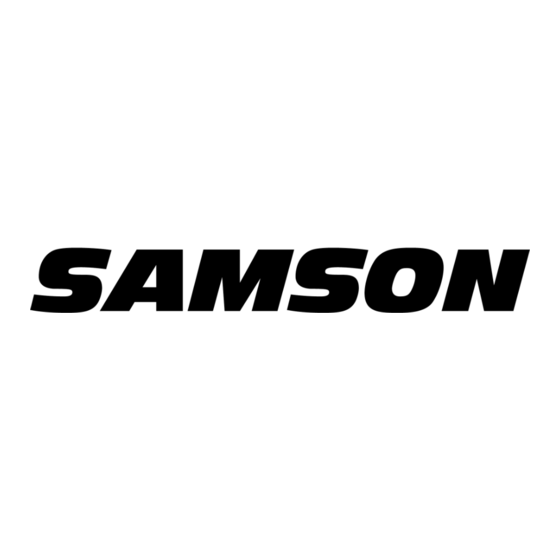Subscribe to Our Youtube Channel
Summary of Contents for Samson 2408
- Page 1 Self-operated Pressure Regulators Excess Pressure Valve Type 2408 Fig. 1· Type 2408 Excess Pressure Valve Mounting and Operating Instructions EB 2528 EN Edition June 2010...
-
Page 2: Table Of Contents
Contents Contents Page Design and principle of operation ..... . 4 Process medium, application range, versions....4 Installation . - Page 3 Safety instructions General safety instructions Observe the following instructions on installation, start-up and operation of the regulator for your own safety: The regulator is to be mounted, started up or serviced by fully trained and qualified personnel only, observing the accepted industry codes and practices. Make sure employees or third persons are not exposed to any danger.
-
Page 4: Design And Principle Of Operation
See also Fig. 2, page 5. NOTICE The process medium flows through the valve Install a strainer (e.g. SAMSON Type 2 NI) in the direction indicated by the arrow on the upstream of the regulator (refer to sec- body. The position of the valve plug (3) deter- tion 2.2). - Page 5 Diaphragm plate with operating diaphragm Actuator housing Set point spring Set point adjuster Control line connection (G ¼ tapped connection for upstream pressure p Fig. 2 · Design and principle of operation, Type 2408 Excess Pressure Valve EB 2528 EN...
-
Page 6: Strainer
≈10 % slope towards pressure tapping point min. 3 x DN Type 2408 min. 2 x DN min. 5 x DN ≈10 % slope towards pressure tapping point Type 2408... -
Page 7: Operation
Operation When tapping the pressure at a straight pipe- We recommend to open shut-off valves line section, observe a minimum distance of slowly from the downstream side. Avoid at least twice the nominal valve size to the pressure surges. regulator. Connect the control lines to the side or top of NOTICE the main horizontal pipeline. -
Page 8: Decommissioning
K coefficient, seat di- functions. ameter or diaphragm area. Contact SAMSON (refer to section 6) if the problems persist. CAUTION! For installation and maintenance work on the regulator, make sure the relevant plant sec- tion has been depressurized and, depending on the process medium, drained as well. -
Page 9: Nameplate
SAMSON After-sales Service for support. ally mounted units (shut-off valves, pres- The addresses of SAMSON AG, its subsidiar- sure gauges etc.) ies, representatives and service facilities worldwide can be found on the Internet at www.samson.de, in a SAMSON product cat-... -
Page 10: Technical Data
Technical data Technical data Table 1 · Technical data Connection · Nominal size G ½, G ¾ and G 1 DN 15 and DN 25 Stainless steel Spheroidal graphite iron Nominal pressure PN 25 Control line connection for G ¼ 8 x 1 mm pipe coefficients 0.25 ·... -
Page 11: Dimensions
Dimensions Dimensions Flanged body made of Body with screwed ends spheroidal graphite iron made of stainless steel Table 2 · Dimensions in mm Connection G ½ G ¾ DN 15 DN 25 Female thread ½” ¾” 1” – – Length L Width across flats SW –... - Page 12 SAMSON AG · MESS- UND REGELTECHNIK Weismüllerstraße 3 · 60314 Frankfurt am Main · Germany Phone: +49 69 4009-0 · Fax: +49 69 4009-1507 EB 2528 EN Internet: http://www.samson.de...
- Page 13 Conversion from chromate coating to iridescent passivation We at SAMSON are converting the surface treatment of passivated steel parts in our production. As a result, you may receive a device assembled from parts that have be- en subjected to different surface treatment methods. This means that the surfaces of so- me parts show different reflections.

















Need help?
Do you have a question about the 2408 and is the answer not in the manual?
Questions and answers